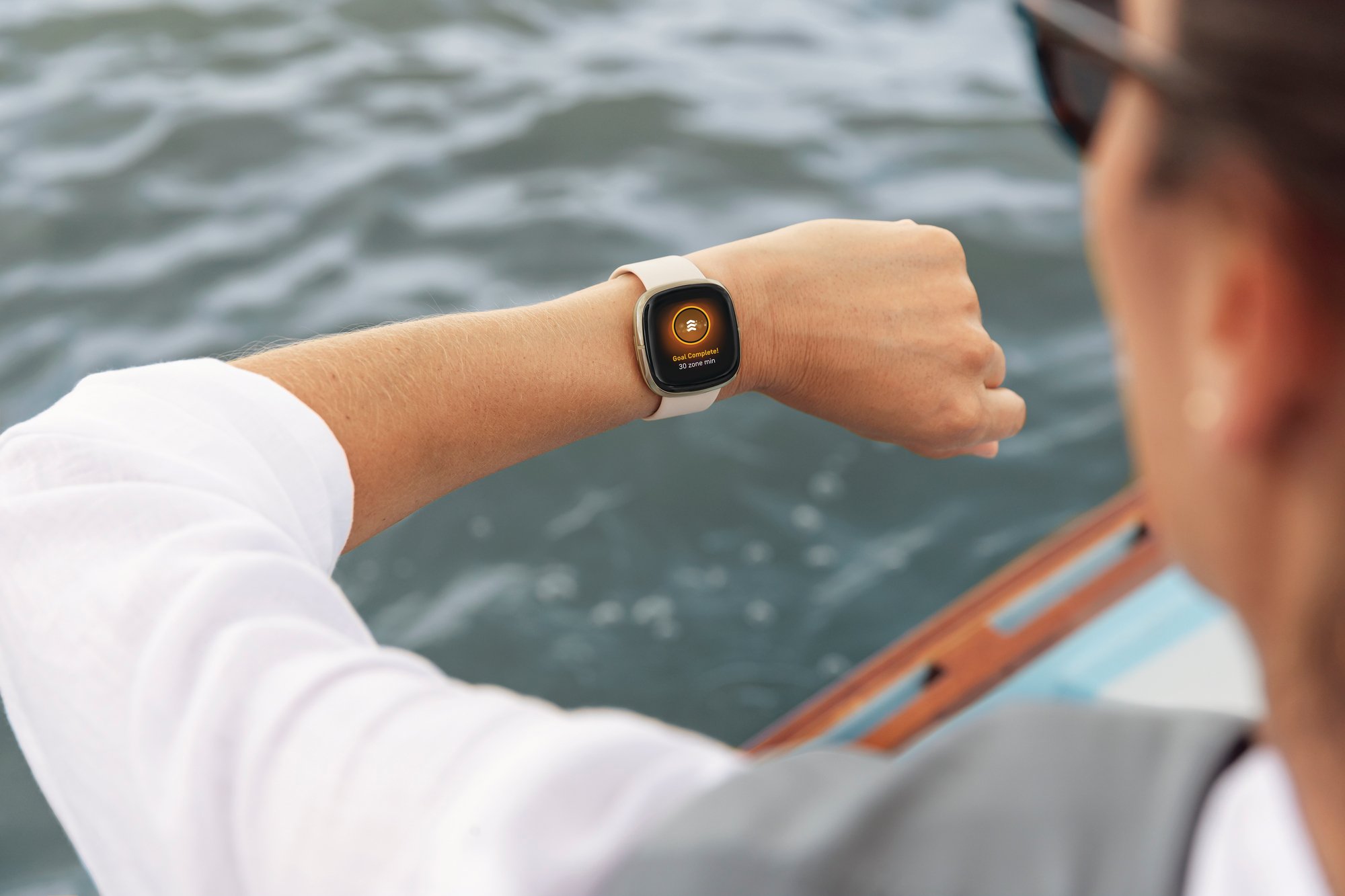Shares of fitness-tracking wearables company Fitbit (FIT +0.00%) fell recently after Apple (AAPL 0.07%) announced the Watch Series 4. Apple's latest iteration comes with new health features unique to this Watch, putting more pressure on the smaller tech company to step up its game. A week later, though, Fitbit is rebounding after it countered with a couple of announcements of its own. True to the message it has been trying to send the market, the struggling wearables maker sees a future in software rather than just manufacturing wristbands.
Connected healthcare and insurance
A new enterprise health and wellness platform called Fitbit Care was announced a week after the unveiling of the new iPhones and Watch. Fitbit Care came with little fanfare, but this business-focused offering has been in the works for some time. The service combines Fitbit's tracking and data experience with that of Twine Health, the virtual coaching start-up it acquired earlier in the year.
Fitbit Care will run through the existing Fitbit Plus app and was designed for health insurers and employers who want to try to better manage employee and participant health outcomes. Together with a Fitbit fitness tracker or smartwatch, participants who work with a subscribing insurer or employer can access services like health coaching and training.
Along with the availability of Fitbit Care, it was also announced that Humana is adding the service as a preferred health coaching solution through its employer group segment. That means that 5 million Humana plan members will be able to access Fitbit Care immediately. Fitbit Health Solutions -- which oversees Care -- will be able to offer the new service to over 100 other health plans and over 1,600 employers already using the company to monitor employees, aimed at managing and preventing chronic disease. The news was big enough to send shares over 5% higher on the day.

Image source: Getty Images.
This needs to work...
Fitbit's recovery strategy has been centered around two things: getting a viable smartwatch to market and building out a portfolio of software-based services. The Ionic smartwatch was a whiff, but the competitively priced Versa checks the first box off the list. Versa sold out in its first quarter of availability and helped smartwatch revenue grow 55% year over year. Box two -- health and wellness services -- have had limited success to date.
CEO James Park often talks about transforming into a health and wellness company instead of a device manufacturer. Little headway has been made, at least as far as revenue is concerned. During the second quarter, about 95% of the $299.3 million in sales came from fitness trackers and smartwatches. The balance was from accessories and premium subscription services.
Fitbit doesn't say exactly how much money it's making from software subscriptions, but it did mention 34% year-over-year growth. That's a decent headline number, except that the base that growth is working off is so small.
That means that, just as Fitbit had to play catch-up to bigger competition in the smartwatch department, it's now in the same position on the subscription side. Even Apple -- arguably the most successful device seller out there -- has seen the need to supplement its hardware lineup with recurring revenue. During its fiscal third quarter of 2018, services grew 31% year over year to top $9.5 billion. That's almost three times the $3.7 billion in sales from its "other products" segment -- which lumps together Apple Watch with AirPods, Apple TV, Beats, and HomePod.
While only a small portion of those figures are from Apple's own connected health services, it illustrates the size of task Fitbit is up against. It's an uphill battle, but relying on the competitively priced sales of the Versa isn't going to cut it if Fitbit wants to be a profitable endeavor again. While the third quarter likely won't reflect Fitbit Care results, investors desperately need some guidance from Park and company that some big gains lie around the corner from the new enterprise subscription.






